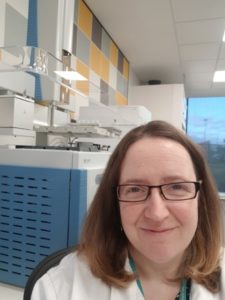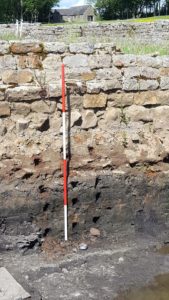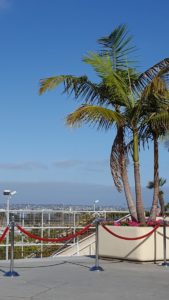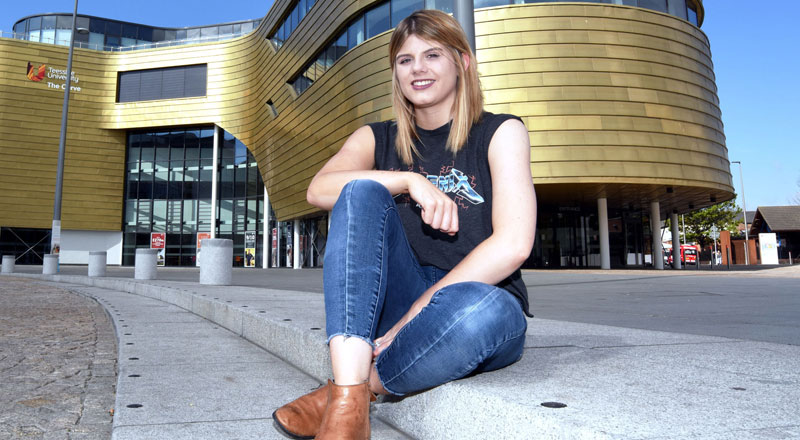As the summer rolls on and it seems to go quicker every year, it gives me time to spend some time outside the lab. I need proof that I do indeed spend sometime outside, as currently, the PhD students do not think I venture out into the field so here are some pictures to prove that I can do more than laboratory work!
In a boat last month – disguised by a silly hat!
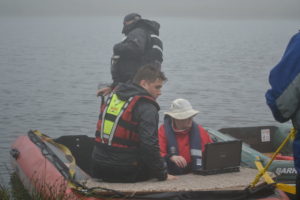
ok so this one is a little older.. but I am getting my feet wet!
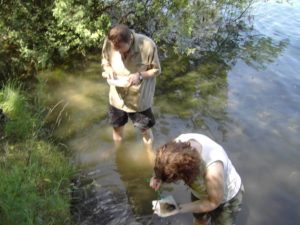
The research team have a broad remit of understanding bone diagenesis and decomposition, mostly this relates to archaeology, but also to forensic and biomedical applications. check out our sister site of https://blogs.tees.ac.uk/tuhumbugs/, This summer so far has meant learning new techniques, setting up microcosms in the laboratory, developing methods in the laboratory, catching up current research and more importantly writing.. watch this space.
For myself the laboratory is really where I am at home, since working in the Biomedical Mass Spectrometry Unit, Newcastle University, my passion has always been the development of new methods, especially towards the measurement of amino acids and organic compounds. I spent three fantastic years in Leipzig, Germany at http://www.eva.mpg.de/evolution/index.html where I worked with one of the first LC-IRMS instruments. Since coming to Teesside University, I have built up a research team that investigates bone diagenesis, decomposition and amino acid metabolism for a range of applications. Our department has a strong forensic and biomedical focus and thus the instruments I work with are also applied to drug analysis. The unique opportunity to work on material at Vindolanda, Northumberland has allowed the research team to grow and use our expertise to aid the understanding of preservation mechanisms in waterlogged environments and importantly provide knowledge as to how to preserve and manage these important World Heritage Sites.
As the summer ends and the new term starts we will be bringing you a snapshot of what research we are doing, where we are presenting, what we are publishing and all the great stuff that our research team does.. we may also post some pictures of our holidays!
